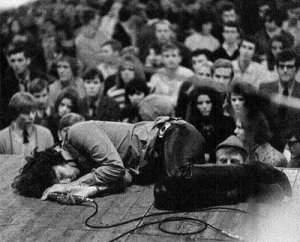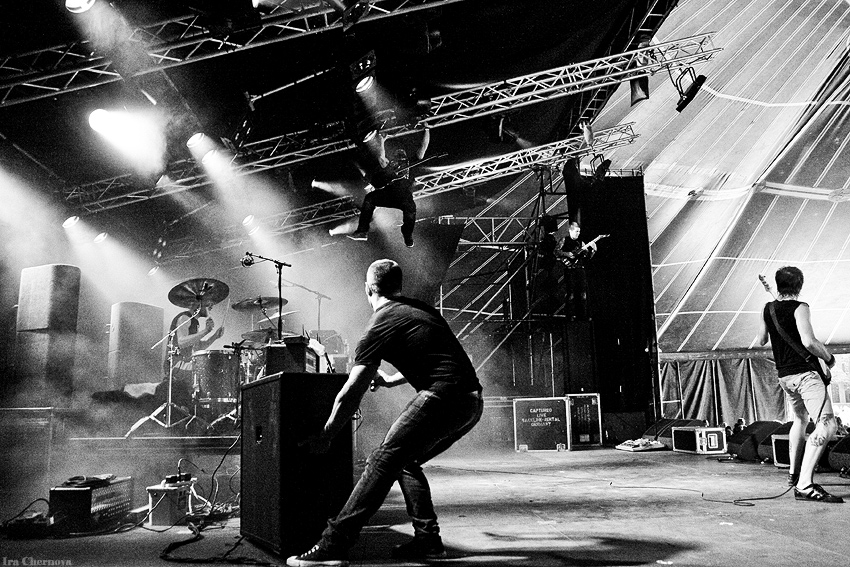Music continues to rely on shock tactics to gain noteriety to the ponit that some artisits are better known for their stage show and image than their music. and this is by no means a recent occurence. Shock tactics in music began in the 1960's with various artists employing a variety of unconventional stagecraft. Examples being The Who smashing their instruments to pieces, Alice Cooper performing a fake beheading, Iggy Pop rolling around in broken glass and inventing stage diving and Jim Morrison pretending to be shot in the head when The Doors performed their song 'The Unknown Soldier'. These odd and provocative acts became well known amongst music fans and provoked interest in the artisits in question because it helped seperate them from other bands who had no recognisable stage show. Some bands would not have a stage show and would opt for a different shock tactic; sheer volume. For example, The Grateful Dead utilising their 'Wall Of Sound' amplifier setup to surprise the audience with their unfathomably loud concerts. Having a recognisable performance forms a legend around performers. Music culture thrives on tales of outlandish actions and acts such as detroying your equipment at the end of a show generates more interest in the act.
Iggy Pop walking on the crowd at a show
 Jim Morrison pretends to be dead as The Doors play 'The Unkown Soldier'
Jim Morrison pretends to be dead as The Doors play 'The Unkown Soldier'
 The Grateful Dead's defeaning "Wall Of Sound" amplifier setup
The Grateful Dead's defeaning "Wall Of Sound" amplifier setup

And shock tactics have by no means been abondoned by performers nowadays, in fact they have been updated for a modern, desensitised audience. Performers have become more provocative, scary and even violent to attract attention. The Heavy Metal band Slipknot are a prime example as their stage show includes band members actively fighting each other and over the top pyrotechnics. The bands three percussionists are elevated on hydraulic drum risers which shake violently over the audience. Slipknot are well known for this chaotic and terrifying live show and this has contributed to their success which includes several grammy nominations and three platinum albums. Other performers take older shock tactics and change them for a modern audience. For example, Dillinger Escape Plan vocalist Greg Puciato advancing Iggy Pop's stage diving. Iggy Pop would simply run across the stage and jump into the audience while Greg Puciato climbs the lighting rig above the stage and throws himself as much as 30 feet into the crowd. Clearly, shock tactics are an important part of performance. Shock tactics push the boundaries of what is acceptable, always creating new and interesting performance styles which is precisely what music thrives on; forming new and creative styles of music and thus innovative stagecraft is an essential component of music for many performers as it generates interest from an understimulated public who are looking for an exciting live performance.
Dillinger Escape Plan guitarist, Ben Weinman, climbs the lighting rig at a show.




